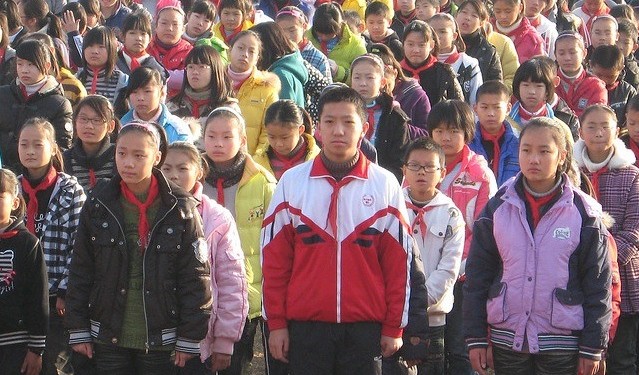The answer: a horizon of opportunity and deep pocketed consumers. Anyone who observes the Chinese education market will notice that two things have come noticeably hand in hand; the pressure on China’s one-child policy generation and the rapidly increasing number of educational options for Chinese families to consider spending their financial resources on. The one-child policy, now over 30 years old, was set to control population but has had other effects on a generation of ‘Little Emperors’.
News and business analysis for Professionals in International Education
Have some pie!
How does China’s one-child policy impact on education?

Victoria Tang is a 29 year old owner of Tianjin Jixian Fairyland Bilingual Kindergarten. She observes, “The positive thing about the one child policy is less economic pressure for a family and the major purpose is that the child can have a better life.” But she acknowledges the expectancy of students’ own families can be overbearing. “From a very young age, the child has to accept competition because families expect their kids to be the best at everything.”
And within that everything – English language learning and academic success is high up the list. The Gao Kao or ‘big test’ in Chinese – required for entrance to university in China – has come under intense scrutiny recently because some students are so desperate to pass that they are cheating their way through. Just last year in one of China’s largest cities, Shenyang, a cheating scam was uncovered whereby students had radio transmitters fitted to their shoes in order to pass the test.
For many English language training companies, this climate of competition – teamed with China’s economic uprising – has meant major growth potential: enterprising businesses are capitalising on this desire to succeed, bringing new ideas, attitudes and options for Chinese students. Crazy English is one example – the brainchild of Li Yang, it is a “non-traditional” form of learning English that has seen its creator become a celebrity and a reported 20 million people sign up. (Students shout English slogans in unison in an effort to learn).
As well as bilingual kindergartens, operators such as the expanding Disney English offer language classes for the age group 2-3.
The big guns in terms of English language training for young adults include EF and New Oriental. EF has 160 schools in China and will continue to open one a week this year. One a week! “We have a total of 10 million Chinese studying with us online and offline,” an EF spokesperson told The PIE News.
“We have a total of 10 million Chinese studying with us online and offline”
Meanwhile, New Oriental claims to be the most recognised brand in China for private education. Its website details 55 schools, 608 learning centres (which includes the same 55 schools), and 2.1 million enrolments in 2011 – for its services which include English language training, test prep, primary, secondary school education and study abroad. The ethos is “humorous, interactive teaching techniques with traditional Chinese educational values”.
Wall Street English, operated by Wall Street Institute, is another big player although not quite in the same league yet. But Valerie Kirk, Marketing Communications Manager for Wall Street English, details growth of 10,000 students within 12 months. “Currently we have 53,000 students enrolled in the nearly 60 centers we have in that country. The really interesting thing is that at this time last year our enrollment in China was 42,500 students,” she says.
Other rising stars are Web International English, which has 50 centres in China helping just under 50,000 people and Rise Education, reported to have 100 centers in China throughout 60 locations with nearly 30,000 students. [more>>]
Still looking? Find by category:



One Response to How does China’s one-child policy impact on education?